All about iron deficiency in women: Causes, symptoms, prevention and correct supplementation
An optimal iron level means that you can be powerful and full of energy. This is because iron is an essential building block of our body, which is primarily required for the production of hemoglobin. Hemoglobin is a protein in the red blood cells that is responsible for transporting oxygen to the various organs. It is the blood pigment and the iron in it is responsible for the red color. Women are particularly susceptible to iron deficiency due to menstruation, pregnancy and other unique biological conditions. Therefore, it is crucial to understand strategies to prevent this deficiency.
What is iron deficiency?
Iron deficiency refers to a condition in which the body does not have enough iron to produce sufficient hemoglobin. This can lead to a special form of anemia, known as iron deficiency anemia, which is particularly common worldwide. Women of childbearing age are particularly affected as they regularly lose iron through menstrual bleeding.
Causes of iron deficiency in women
Iron deficiency is common and can have many different causes, The main causes of iron deficiency in women are varied and include:
- Menstruation: Some women suffer considerable blood loss during their monthly period, which can lead to a rapid drop in iron reserves.
- Pregnancy: During pregnancy, the need for iron increases significantly as the blood volume increases and iron is needed to supply the fetus and placenta.
- Dietary habits: An inadequate intake of iron-rich foods such as meat, pulses and leafy vegetables can increase the risk of iron deficiency.
- Chronic diseases: Diseases such as coeliac disease or chronic inflammatory conditions can impair the absorption of iron in the intestine.
Symptoms and consequences of iron deficiency
Here are 9 common symptoms you should look out for:
1️⃣ Sensitivity to cold: Iron deficiency affects circulation and the ability of the blood to transport oxygen to the extremities.
2️⃣ Pale skin: Iron deficiency can cause the skin and mucous membranes (e.g. gums) to look paler than normal, as there are fewer red blood cells and haemoglobin.
3️⃣ Hair loss: A lack of iron means that less oxygen reaches the hair follicles, which can disrupt their function and ultimately lead to hair loss.
4️⃣ Brittle nails: In severe cases, iron deficiency can cause nails to become brittle.
5️⃣ Cracked corners of the mouth: Also known as angulus infectiosus or cheilosis.
6️⃣ Headaches & dizziness: These can occur if your brain does not receive enough oxygen due to a lack of iron.
7️⃣ Constant fatigue: results from the body not being able to transport enough oxygen to the cells, as iron is necessary for the formation of hemoglobin.
8️⃣ Shortness of breath: You can get out of breath more quickly with iron deficiency, even during light physical activity, because your body is trying to compensate for the lack of oxygen.
9️⃣ Heart palpitations: An irregular heartbeat or the feeling that the heart is beating unusually hard or fast can be a symptom of iron deficiency.
You should aim for these iron levels as a woman
Blood iron levels can be determined by various tests, including ferritin, transferrin saturation and serum iron. Here are some general guidelines for optimal values:
- Ferritin in the serum (storage iron): This is an indicator of the iron reserves in the body. Optimal values are between 70 and 200 ng/mL for women.
- Transferrin saturation (transport storage iron): This measures how much of the transporting protein transferrin is saturated with iron. A value of 25% to 35% is considered optimal.
Dietary tips for preventing iron deficiency
An iron-rich diet is an essential component in the prevention of iron deficiency. If you like eating red meat, it’s a good idea to regularly enjoy a juicy steak or other meats such as lamb and chicken liver, as these are some of the best sources of iron. For vegetarians or those who want to limit their meat consumption, there are many plant-based sources of iron:
- Wholemeal products and pulses: Wholemeal bread, lentils, chickpeas and other pulses are not only rich in iron, but also in fiber and protein. Chickpeas, for example, which are often used in dishes such as hummus, are an excellent source of iron.
- Nuts and seeds: Pumpkin seeds, linseed, pistachios and sunflower seeds are rich in iron. They are also delicious snacks that are good for in-between meals, although they are relatively high in calories.
Tips for optimizing iron intake
The absorption of iron from plant sources can be inhibited or promoted by certain foods:
- Avoid inhibitors of iron absorption: Milk, tea, coffee and red wine contain substances that can impair iron absorption, especially from plant sources. It is advisable not to consume these drinks at the same time as iron-rich meals.
- Promote iron absorption: Consuming foods rich in vitamin C such as oranges, kiwis, strawberries, peppers and broccoli can improve the absorption of plant-based iron. A glass of orange juice with an iron-rich meal can therefore significantly increase iron absorption. By integrating these nutritional recommendations into your everyday life, you can actively contribute to the prevention of iron deficiency and support your health.
Prevention through iron supplementation
Supplementing the diet with iron is also an effective method of preventing a deficiency. However, it is important to use iron supplements responsibly and according to medical advice to avoid overdosing, which can lead to gastrointestinal discomfort or more serious health problems.
Correct dosage of iron supplements
The ideal daily dose of iron varies according to individual requirements:
- Non-pregnant women of childbearing age: A daily iron intake of 16 mg is recommended by the German Nutrition Society (DGE). Bear in mind that this dose includes the intake from food and supplements.
- During pregnancy: The recommended dose increases to 27 mg per day.
- During breastfeeding: the requirement drops again to 16 mg daily.
- Postmenopause: the iron requirement drops slightly to 14 mg daily
If possible, iron supplements should be taken on an empty stomach to optimize absorption. If this causes stomach discomfort, the iron can also be taken during a meal, but you should avoid drinking coffee, tea and dairy products around this time.
Your natural helper for iron deficiency
Your natural helper for iron deficiency
-
Bestseller
Mrs Do-It-All 18+
Organic Multivitamin Complex Premium for women of fertile age, All-In-One!79,90 €2.302,59 € / kg
-
Bestseller
Mrs Do-It-All 45+
Organic Multivitamin Complex Premium for menopausal women, All-In-One!79,90 €1.997,50 € / kg
-
Bestseller
Mrs Do-It-All 55+
Organic Multivitamin Complex Premium for women after the menopause, All-In-One!79,90 €1.997,50 € / kg

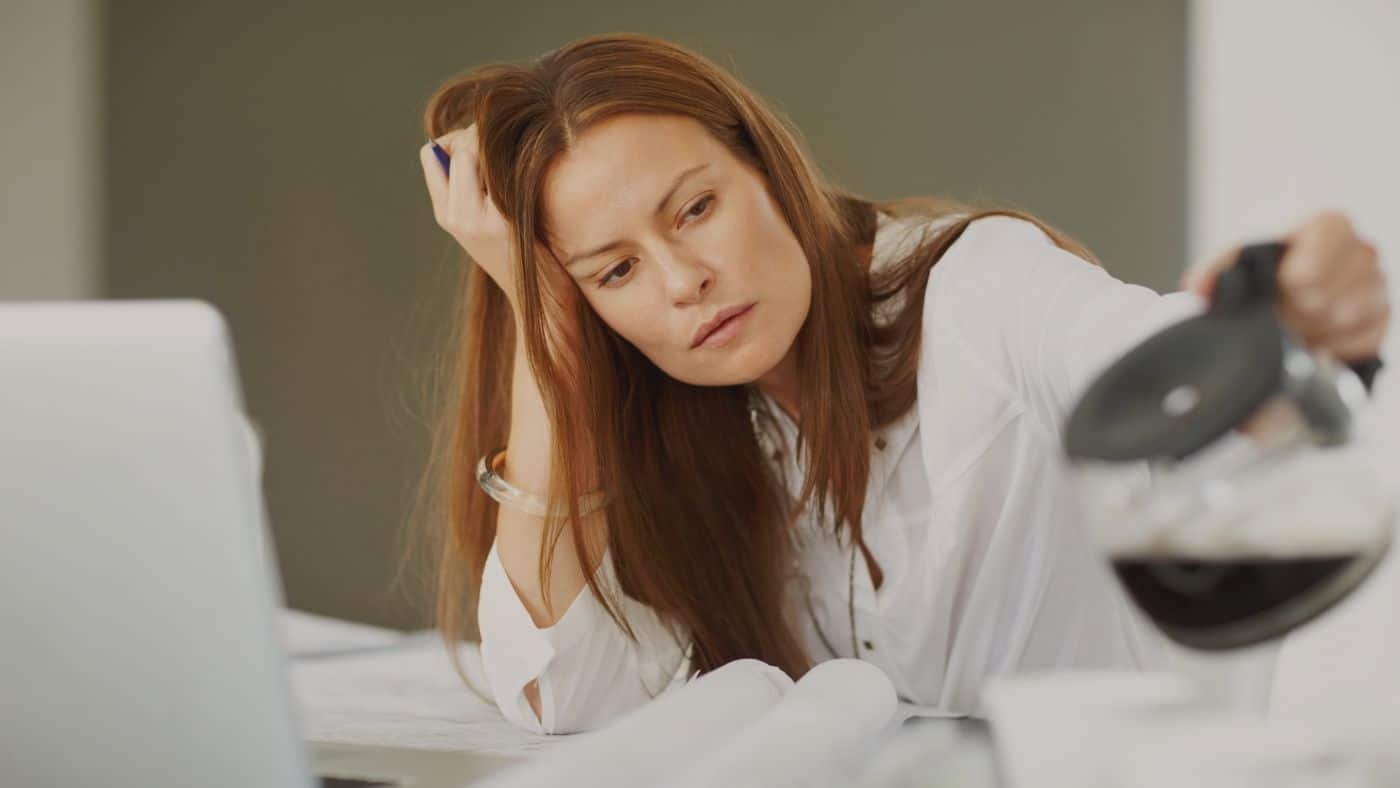

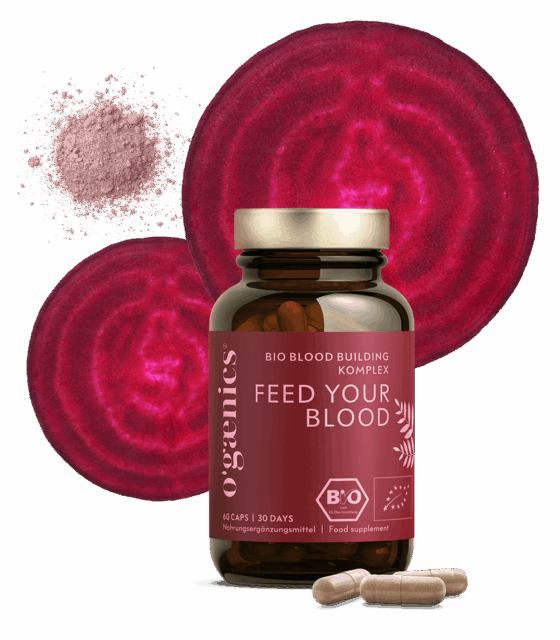

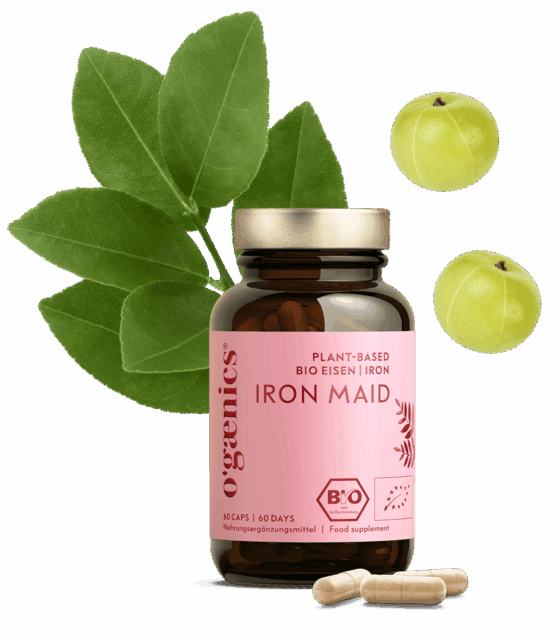

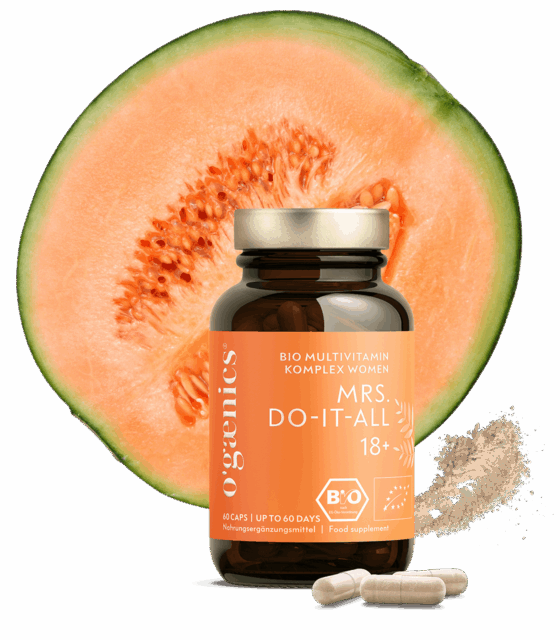
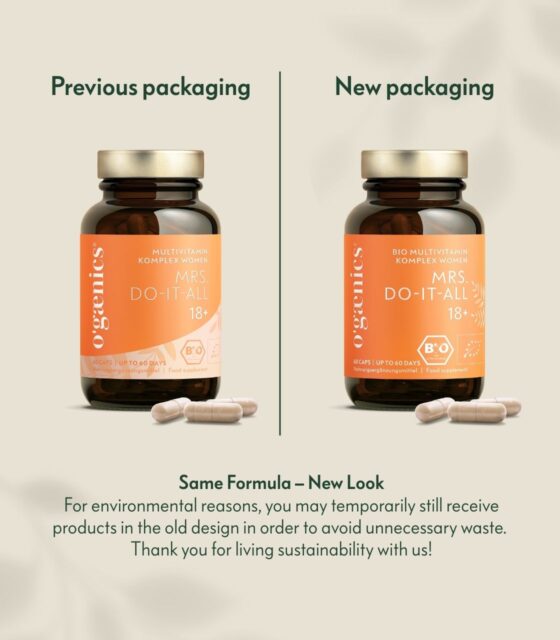
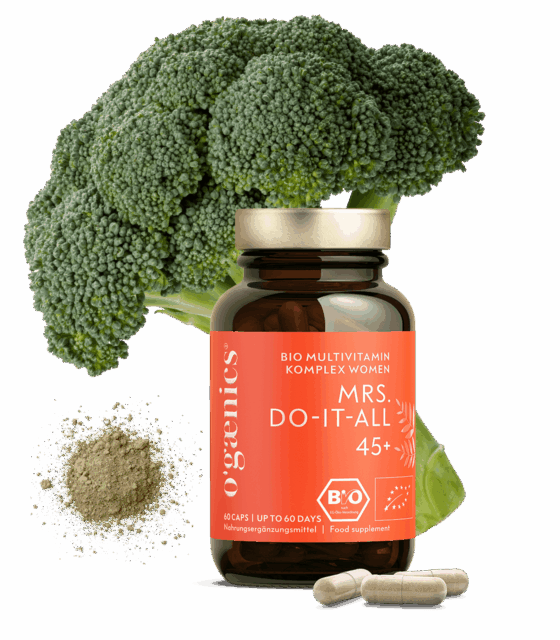
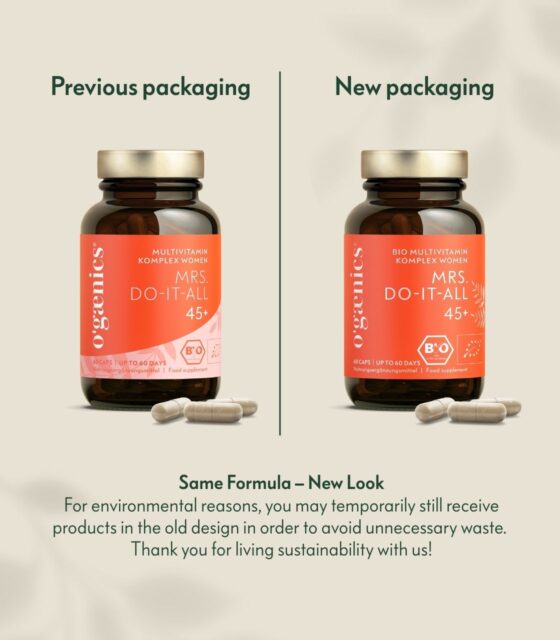

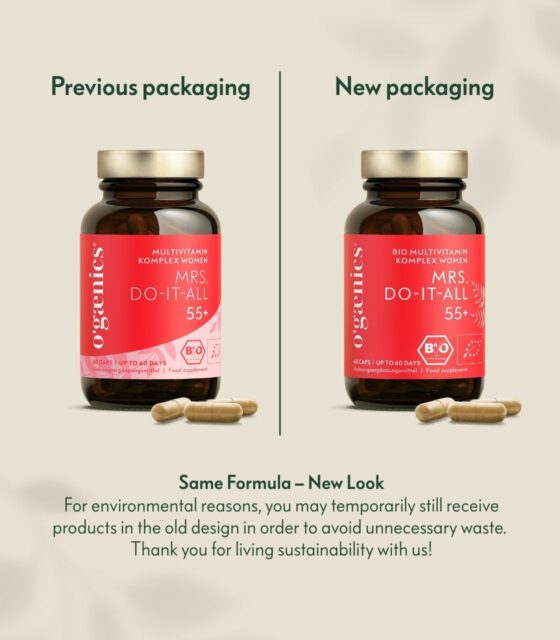



 No products in the cart.
No products in the cart.